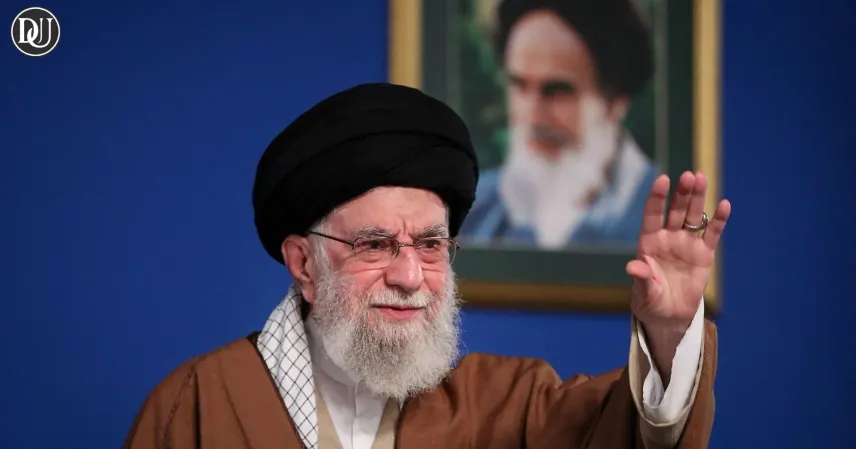In a strongly worded address, iranian supreme leader ali khamenei delivered his first public statement since the ceasefire agreement between Iran and Israel came into effect. The speech, delivered in Tehran before a gathering of clerics and military officials, emphasized Iran’s unwavering stance against U.S. pressure and reaffirmed its ideological and strategic goals in the region.
The message came just days after a fragile ceasefire was brokered to end weeks of escalating conflict between Iranian-backed groups and Israeli forces across Lebanon and Syria.
“We Will Never Surrender”
In his statement, iranian supreme leader ali khamenei declared that Iran would never bow to American or Western demands, reiterating that resistance is a permanent feature of Iranian foreign policy. He stated, “We will never surrender to the United States. This is a path of dignity, and our people have shown they will defend it at all costs.”
The remarks were met with thunderous applause from supporters present, many of whom interpreted this speech as a clear signal that Iran will continue to assert itself in regional affairs despite growing economic and military pressures.
Ceasefire Context and Regional Impact
The Iran-Israel ceasefire, reached after behind-the-scenes diplomacy involving multiple international actors, is seen as a temporary de-escalation rather than a long-term solution. While fighting has paused, tensions remain high, particularly in Gaza, Lebanon, and southern Syria.
Iranian supreme leader ali khamenei made it clear in his address that the ceasefire does not mean Iran is retreating. He warned that Tehran would continue supporting what he called “resistance forces” across the Middle East, a reference to groups like Hezbollah and various Palestinian factions.
Defiance and Domestic Messaging
The tone of iranian supreme leader ali khamenei was deeply defiant, but it was also aimed at a domestic audience. With inflation and sanctions continuing to bite the Iranian economy, his speech served as a rallying call to unite the nation under the banner of resistance.
He invoked historical references, portraying Iran as a victim of foreign aggression yet unbroken in spirit. “Iran has stood tall against conspiracies, invasions, and economic warfare. We will emerge stronger,” he stated.
International Reactions Begin to Surface
Following the address, early reactions from international powers were mixed. Some diplomats described the comments as "unhelpful," while others saw them as posturing aimed at maintaining internal unity. The U.S. has not officially responded to the speech, but Washington continues to express support for Israel and regional stability.
Meanwhile, observers warn that the fragile ceasefire could collapse if provocations resume. Many are watching closely for how Tehran’s words translate into actions in the coming weeks.
Future Outlook
Iranian supreme leader ali khamenei’s message makes it clear: the ideological struggle continues. Even as diplomacy opens brief windows of calm, the core disputes over influence, sovereignty, and regional dominance remain unresolved.
The speech also underscores that Iran’s strategic outlook is unlikely to change — and that any long-term peace would require far more than just military silence.










